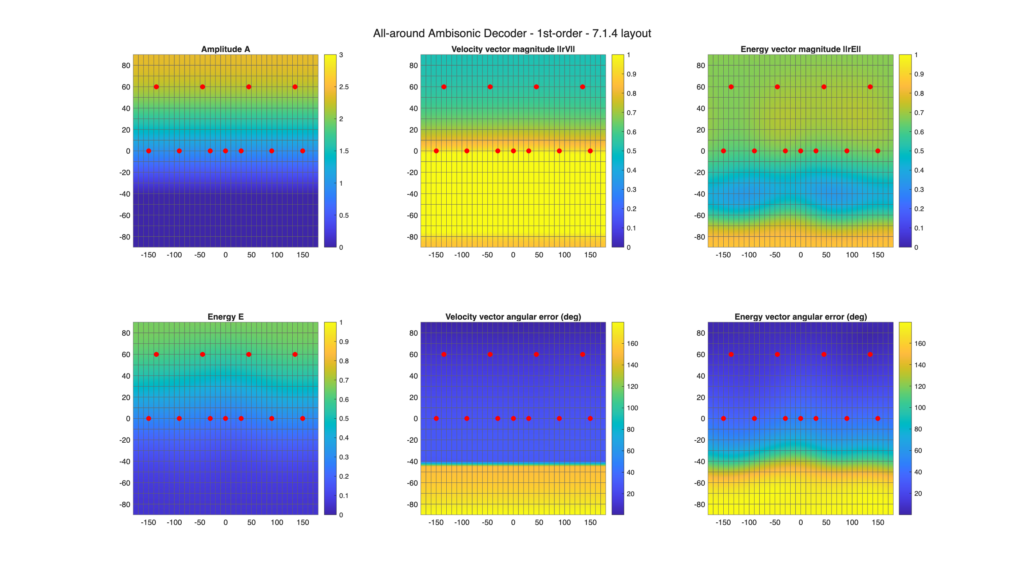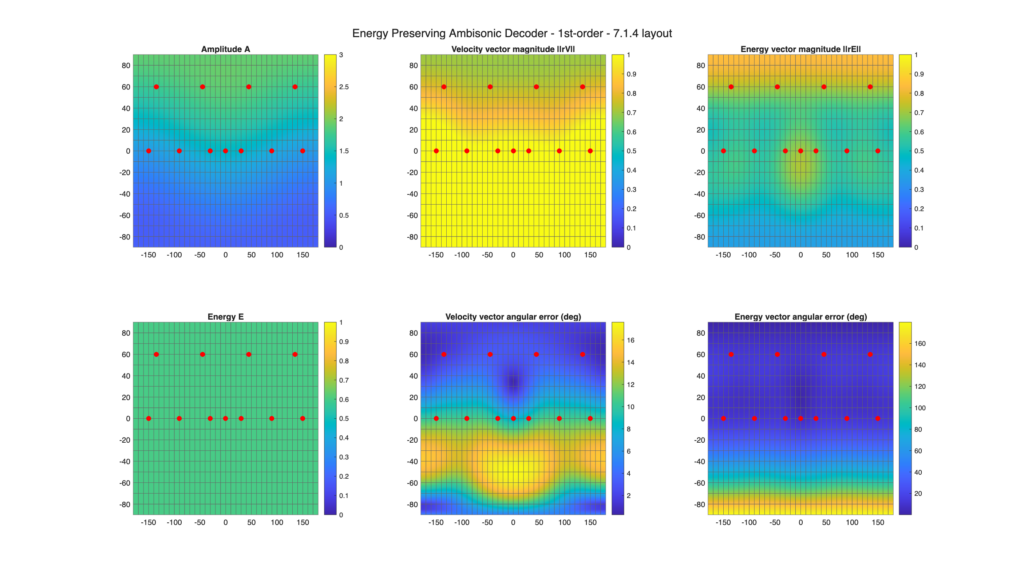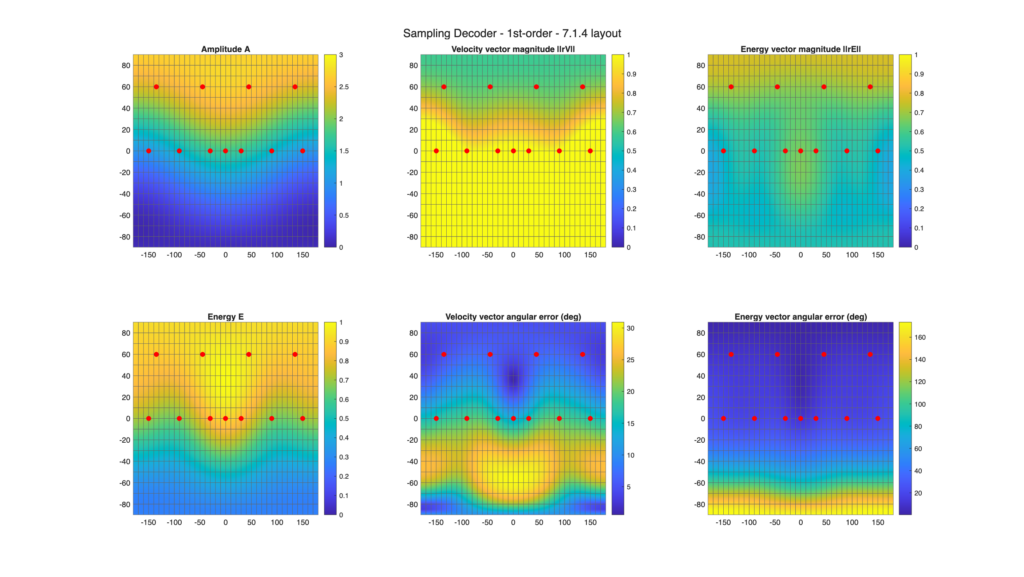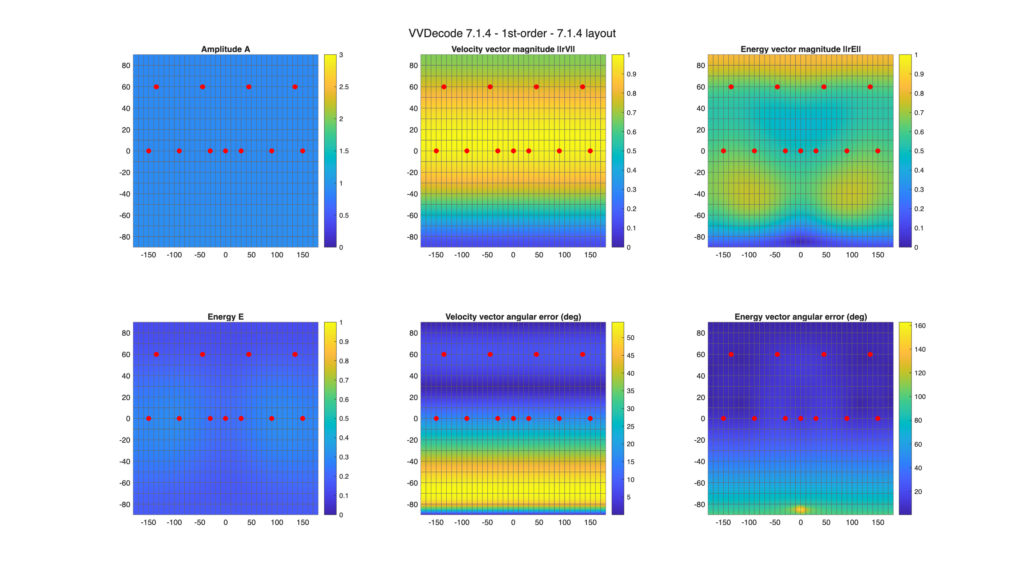Analysis of several 7.1.4 decoders using Archontis Politis’ MatLab library.
Types of Decoders
All Around Ambisonic Decoder – best at preserving directions
Energy Preserving Ambisonic Decoder – best at preserving loudness
Sampling Ambisonic Decoder – simple beamforming or virtual microphone deccode
Types of Analysis
Amplitude – perceived loudness at low frequencies
Velocity Vector Magnitude – amplitude at low frequency in the correct direction
Energy – perceived loudness at high frequencies
Energy Vector Magnitude – energy in the correct direction
Velocity Vector Angular Error – directional error at low frequencies
Energy Vector Angular Error – directional error at high frequencies
1st Order
AllRAD 7.1.4 – All Around Ambisonic Decoder

EPAD 7.1.4 – Energy Preserving Ambisonic Decoder

SAD 7.1.4 (Beamforming or Virtual Mics)

VVDecode 7.1.4 – Hand tweaked decode

2nd Order
AllRAD 7.1.4 – All Around Ambisonic Decoder

EPAD 7.1.4 – Energy Preserving Ambisonic Decoder

SAD 7.1.4 (Beamforming or Virtual Mics)







